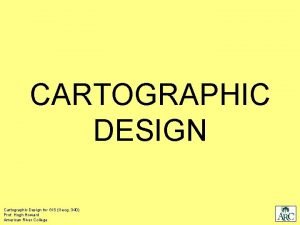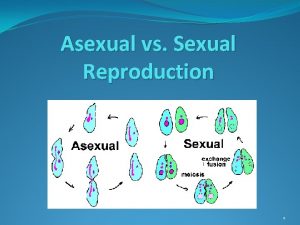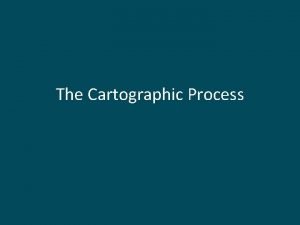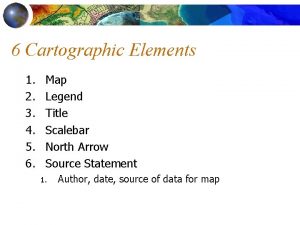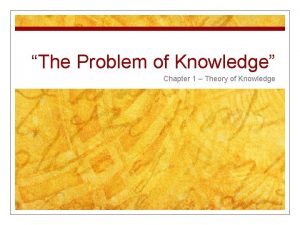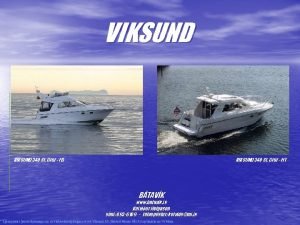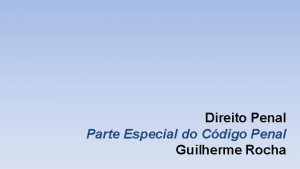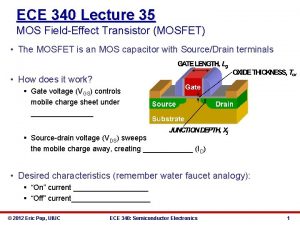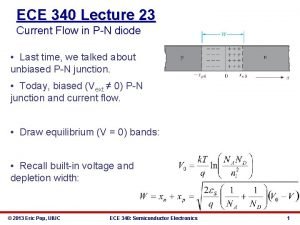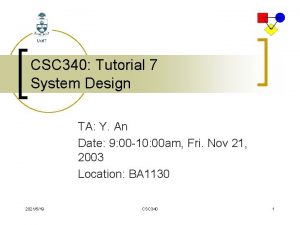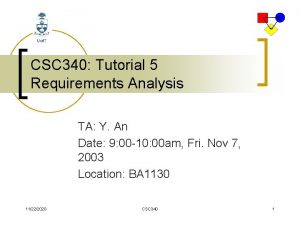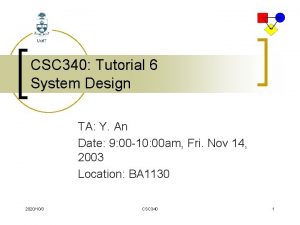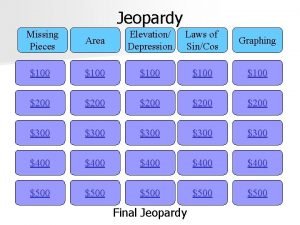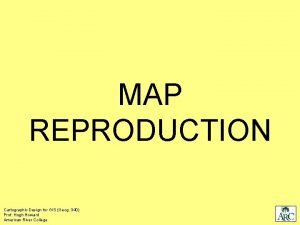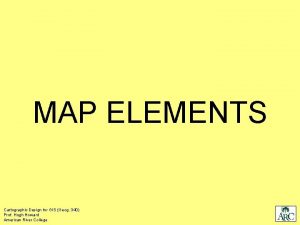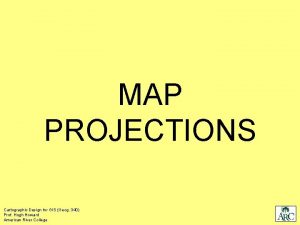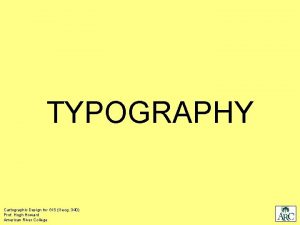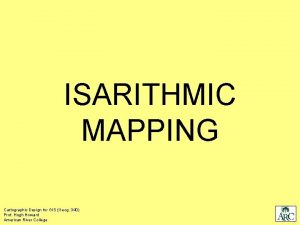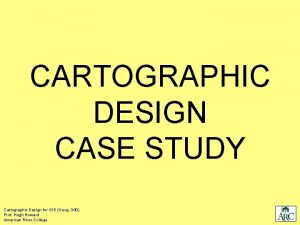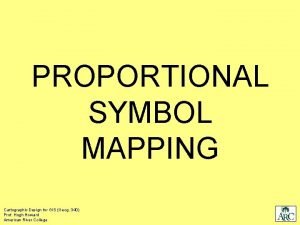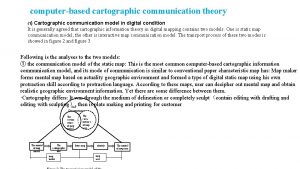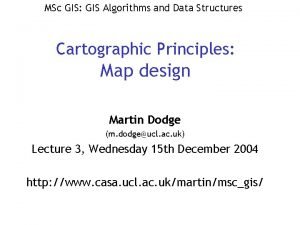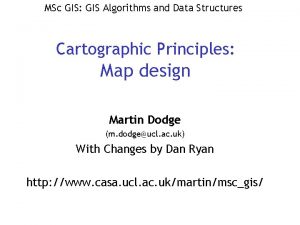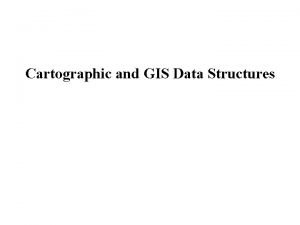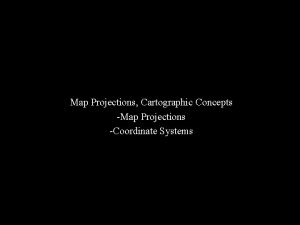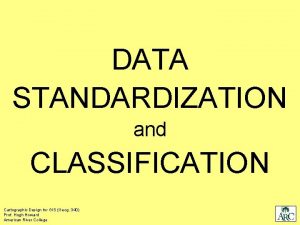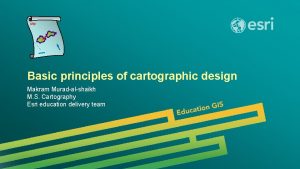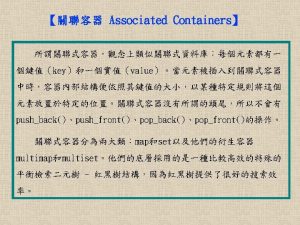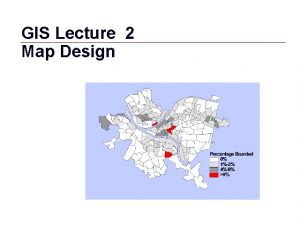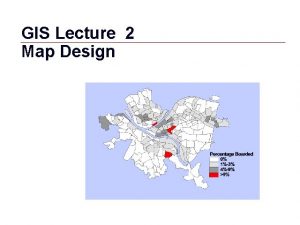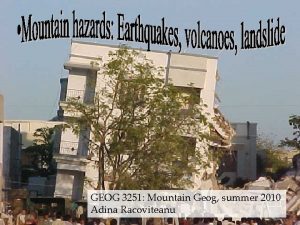MAP REPRODUCTION Cartographic Design for GIS Geog 340






































- Slides: 38

MAP REPRODUCTION Cartographic Design for GIS (Geog. 340) Prof. Hugh Howard American River College

MAP REPRODUCTION • The printing of a map, or the electronic duplication of a map – Print reproduction refers to the physical printing of a map using inks on paper – Electronic reproduction refers to the duplication of a map in digital form • I will focus on print reproduction

PLANNING AHEAD

PLANNING AHEAD

PLANNING AHEAD • The following questions need to be answered early in the design process – Who is the intended audience, and what is the purpose of the map? – What is your budget? – When is your deadline? – What material will be used? – Will it be printed in full color or gray tones?

PLANNING AHEAD – – What size will it be? How many copies are required? Will it be folded? What will the pattern be? What level of print or display quality is acceptable? – Will you copyright the map? Will the map infringe on an existing copyright?

MAP EDITING

MAP EDITING • The critical evaluation and correction of every aspect of a map – Begins the first time the cartographer views the map in its early stages, and culminates just before reproduction begins

MAP EDITING • Questions that should be addressed when editing: – Map design: Does the design appropriately serve the map user? Does it communicate effectively? – Completeness: Are any features, map elements, or type labels missing? – Accuracy: Are features, map elements, and type labels correctly placed? Are words and numbers correct?

MAP EDITING • Cartographers who edit their own maps face over-familiarity and fatigue – Have a separate individual edit the map – Edit with “fresh eyes, ” at the beginning of a work session – Edit large maps in sections – View maps upside-down or sideways – Edit after several days of separation from a map – Read type out loud

RASTER IMAGE PROCESSING for PRINT REPRODUCTION

RASTER IMAGE PROCESSING • The conversion of a digital map into a raster image that can be processed directly by a raster-based printing device

RASTER IMAGE PROCESSING • Printing the digital map

SCREENING for PRINT REPRODUCTION

SCREENING • A technique that makes colors appear lighter – Involves reducing the amount of ink or toner applied to the print medium – Used to create tints of a base color, and to represent continuous tone surfaces

SCREENING • Two categories of screening – Halftone – Stochastic

SCREENING • Halftone screening – Used in most print reproduction methods with the exception of ink-jet printing – Ink or toner is applied in a pattern of equally spaced dots of variable size Amplitude Modulation (A. M. )

SCREENING • Halftone screening – Helped define the pop art movement…

SCREENING • Stochastic screening – Used primarily with ink-jet printing – Ink or toner is applied in a pattern of very small, pseudo randomly spaced dots of uniform size Frequency Modulation (F. M. )

ASPECTS of COLOR PRINTING

COLOR PRINTING • Process colors – CMYK (subtractive primaries + black) – Mixed on the page by applying them, in sequence, to the same area Cyan + Black Magenta Yellow

COLOR PRINTING • Process colors (cont. ) – Semi-opaque, or translucent, allowing them to combine on the page – Together with screening, allow for the creation of a wide variety of colors – Used in four-color process printing

COLOR PRINTING • Process colors (cont. ) – When mixed on the page, tints of each base color are represented by halftone patterns, each with a unique screen angle Rosette Pattern

COLOR PRINTING • Spot colors – Opaque inks that are premixed before they reach the printing device – Tints can be created through screening – Exact color matches are easier to achieve because they do not rely on the printing device for mixing

HIGH VOLUME PRINT REPRODUCTION

HIGH VOLUME PRINT REPRO. • When large numbers of maps are required, issues of cost and time become critical – Methods for low-volume print reproduction such as laser and ink-jet printing become too costly or time-consuming – High-volume reproduction is dominated by a single method: Offset Lithography

HIGH VOLUME PRINT REPRO. • Offset Lithography – Lithography is a printing process in which ink sticks only to certain areas of a surface – Virtually all mass-produced maps are the result of offset lithography – Characterized by excellent print quality and high printing speed

HIGH VOLUME PRINT REPRO. • Offset Lithography (cont. ) – Provides a significant decrease in the cost per unit as the number of copies increases – Performed on an offset lithographic printing press

HIGH VOLUME PRINT REPRO. • The pre-press phase – Consists of various technologies and procedures that make offset lithographic printing possible – Printing plates are produced – Proofs are produced

HIGH VOLUME PRINT REPRO. • Printing plate – A sheet of aluminum that is ultimately mounted on a roller on an offset press – Receives a positive, latent (invisible) image that ink will stick to

HIGH VOLUME PRINT REPRO. • Printing plate (cont. ) – One is created for each color – Mounted on an offset press, washed with ink, and used to transfer an image onto the print medium Traditionally created from film negatives Replaced by Computer-To-Plate (CTP) technology

HIGH VOLUME PRINT REPRO. • Proof – A representation of what the final, reproduced map will look like – An essential component of the prepress phase – Used in conjunction with editing to ensure that your map will be reproduced just as you intend

HIGH VOLUME PRINT REPRO. • Proof (cont. ) – Various levels of quality/cost

HIGH VOLUME PRINT REPRO. • File formats for pre-press – A digital map can be delivered to the service bureau in a variety of formats – In the native format of the application software that created it (. MXD, . AI) – In a page description language (Postscript) – In a portable document format (EPS, PDF)

HIGH VOLUME PRINT REPRO. • Offset Lithographic Printing – The offset press has one or more printing units that transfer ink to the print medium – Each printing unit is capable of printing one base color

HIGH VOLUME PRINT REPRO. • Offset Lithographic Printing (cont. ) – The image is transferred from the printing plate to the blanket cylinder, which then transfers the image onto the print medium

HIGH VOLUME PRINT REPRO. • Offset Lithographic Printing (cont. ) – Multicolor print jobs employ multiple printing units, one for each base color – The print medium receives a different color ink from each printing unit

MAP REPRODUCTION Cartographic Design for GIS (Geog. 340) Prof. Hugh Howard American River College
 Qualitative typographic visual variables
Qualitative typographic visual variables Sexual reproduction vs asexual reproduction venn diagram
Sexual reproduction vs asexual reproduction venn diagram Sexual reproduction and asexual reproduction
Sexual reproduction and asexual reproduction Asexual vs sexual venn diagram
Asexual vs sexual venn diagram Cartographic process
Cartographic process Cartographic elements
Cartographic elements Cartographic paradox
Cartographic paradox Unit 1 geog. of ga/ga’s beginnings
Unit 1 geog. of ga/ga’s beginnings Free floating subdivisions
Free floating subdivisions Geog 312 sfu
Geog 312 sfu Geography dse
Geography dse Geog 214
Geog 214 Geog
Geog Oba-340
Oba-340 Viksund 340 st cruz
Viksund 340 st cruz 2,340,000,000
2,340,000,000 2,340,000,000
2,340,000,000 Assignment mgt340
Assignment mgt340 Mos capacitor c-v curve
Mos capacitor c-v curve Art. 317 do código penal
Art. 317 do código penal Szkoła podstawowa nr 340 warszawa
Szkoła podstawowa nr 340 warszawa Asu cse 340
Asu cse 340 Adam doupe cse 340
Adam doupe cse 340 Ece 340
Ece 340 Qualitative description of current flow at a junction
Qualitative description of current flow at a junction Cse 340 project 1
Cse 340 project 1 Csc 340
Csc 340 Csc 340
Csc 340 Oba-340
Oba-340 Oba-340
Oba-340 Vineeth kashyap
Vineeth kashyap 340 ucas points
340 ucas points Adam doupe cse 340
Adam doupe cse 340 3253/340
3253/340 Adam doupe cse 340
Adam doupe cse 340 Csc 340
Csc 340 340 bce
340 bce Rounding 5 and above give it a shove
Rounding 5 and above give it a shove A meteorologist measures the angle of elevation
A meteorologist measures the angle of elevation
